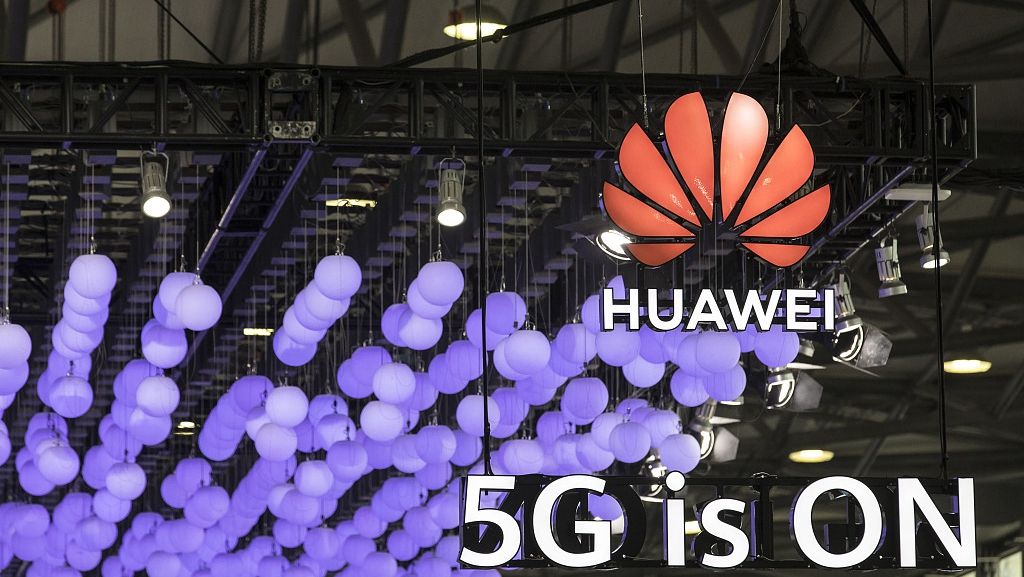

Andy Purdy is well placed to assess the technological standoff that the United States has instigated with China.
And he sees fear – American fear.
He should know. Purdy is chief security officer for Huawei Technologies USA, a job he has occupied for seven years. He was also once a member of the White House staff where he helped to draft the U.S. National Strategy to Secure Cyberspace in 2003, according to his bio, and later worked in cybersecurity with both the Department of Homeland Security and the U.S. Computer Emergency Readiness Team.
From his vantage point, the U.S. is worried that China may become a formidable adversary with its rise economically and militarily and growing influence around the world.
"The U.S. fears China more than Huawei," he asserted on the CGTN discussion program, The Heat.
The program looked at the announcement by President Donald Trump at the G20 summit that American technology companies – banned from supplying Huawei since May – would be given a qualified go-ahead to restart sales of products “where there is no great national emergency problem.”
Partial truce
The Chinese telecoms giant has been caught in the middle of the protracted trade fight that Trump initiated against China and has been forced time and time again to defend its reputation against unsubstantiated American claims that its equipment could be used to spy for Beijing.
Purdy sees the Trump decision, described by some as a partial truce, as more of "an olive branch than a firm commitment," as specific details about the extent of the rollback are awaited.
Huawei's inexorable lead in 5G technology has left the U.S. gasping. So it's lashing out.
American commentator Einar Tangen dismissively put it best on the program when he said of the U.S.: "We believe that because they (China) have a superiority in a leading technology that we ignored for too long that they might use it the way we would use it."
What Purdy yearns for is that the United States would engage in serious discussion with Huawei because "we don't speak for the Chinese government and the Chinese government doesn't speak for us."
He would like to talk to Washington about extending to the Shenzhen-based firm the special government-monitored risk mitigation program that it has with Huawei competitors Nokia and Ericsson because of their "deep ties" with the Chinese government, allowing them to do business in the U.S.
Cyberspace security
Purdy is also keen for the two countries to collaborate on reducing risk in cyberspace.
"The fact is cyberspace is an unsafe world," he said. "We have at least five nations in the world that can virtually plant hidden functionality, malicious codes to do bad things. So that is why the message that I had working as part of the U.S government and the message that I have representing Huawei is we have to have a comprehensive approach to risk to make sure cyberspace is a safer place ..."
All of us share his wish to make 5G more secure than 4G.
Matthew Bey, a senior global analyst at the intelligence firm, Statfor, told the program that he felt the U.S. had legitimate concerns about security but he is not sure how an issue about "hypothetical allegations" against Huawei can be resolved.
It is this lack of evidence that has led countries around the world to ignore the Trump administration and do their 5G business with the Chinese behemoth.
It's not just about blindly accepting the message to "lock her up." "Bring the proof" – or shut up.
Top Photo: Signage is displayed at the Huawei Technologies Co. booth at the World Mobile Communications Conference in Shanghai on June 27, 2019. /VCG Photo

Copyright © 2018 CGTN. Beijing ICP prepared NO.16065310-3
Copyright © 2018 CGTN. Beijing ICP prepared NO.16065310-3